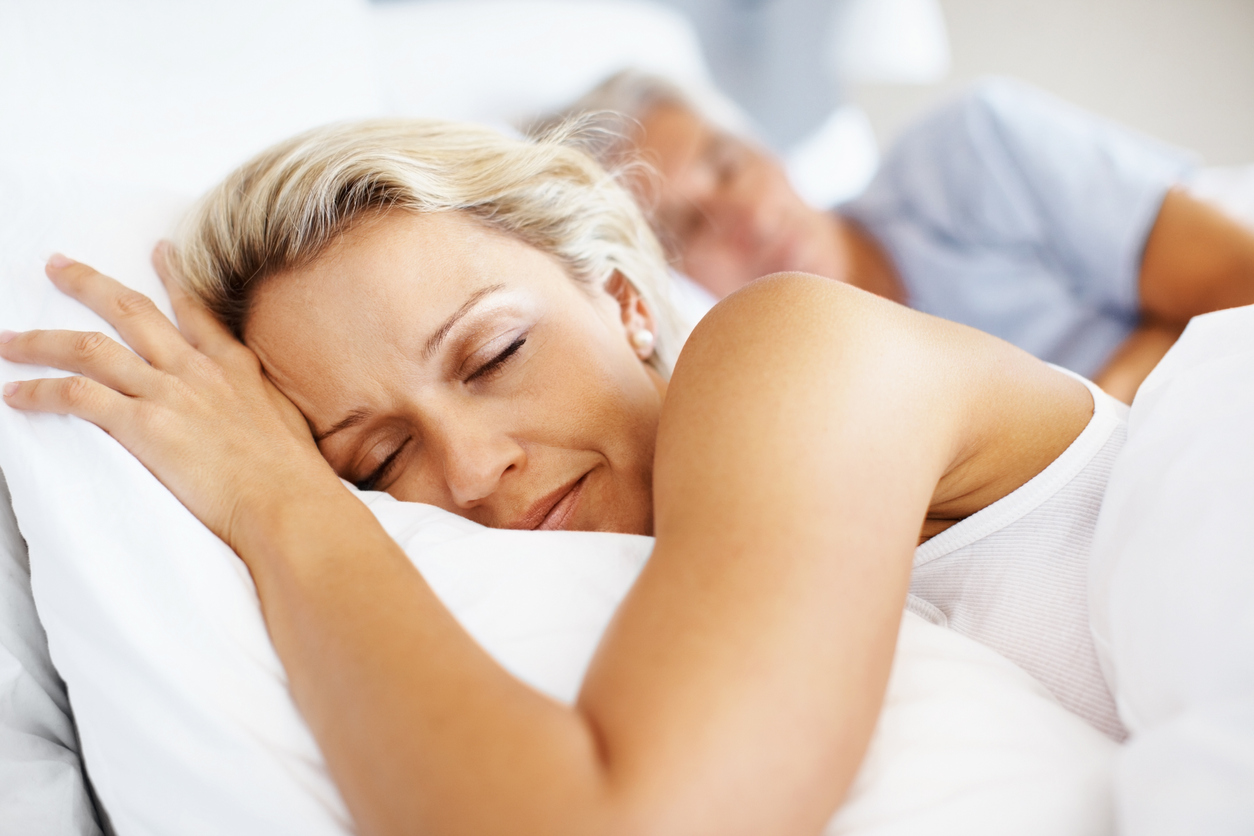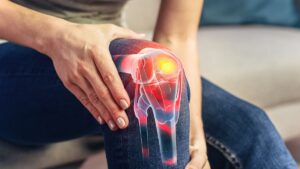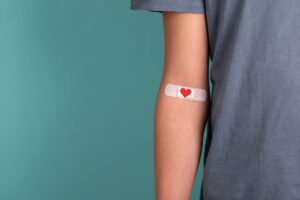Menopause has a variety of well-known signs that most women expect as they make the transition—hot flashes, sleepless nights, and mood swings. Many women aren’t prepared to deal with the host of other symptoms that crop up. From changes in body odor to heart palpitations, the process of menopause is a wild ride.
Some of the lesser-known symptoms that women experience are nerve issues like tingling, numbness, and electric shock sensations, which are usually felt just under the skin. It can either be a crawling or stinging sensation or feel like a sudden jolt or snap of a rubber band. Although these sensations can occur anywhere, they are more commonly felt on the head or extremities.
Episodes of electric shock sensations (ESS) are typically short-lived, sometimes only a few seconds long, and may appear singly or in clusters. In many cases, these shocking sensations are a precursor to other menopausal symptoms, particularly hot flashes.
Causes of Electric Shock Sensation (ESS)
This condition is believed to be triggered by the fluctuating hormone levels of menopause. The decrease in estrogen may trigger the neurons to misfire, but how it does this is still unknown. There isn’t always a clear trigger for when an electric shock sensation will strike. However, some circumstances, such as stress, a sedentary lifestyle, overuse of alcohol, or significant life changes, may increase the chances of experiencing shocks.
Electric shock sensations may frequently be caused by the rapidly shifting hormones at certain times of a woman’s life, including puberty, pregnancy, breastfeeding, and menopause. Still, they can also be caused by other circumstances. Some conditions that can trigger electric shock sensations include:
- Diabetic peripheral neuropathy
- Epilepsy
- Herniated discs
- Nutritional deficiencies
- Osteoporosis
ESS may also mimic the abnormal sensations known as dysesthesia, which are commonly related to Multiple Sclerosis but are typically much less painful.
Preventing and Treating Electric Shock Sensations
From lifestyle changes to conventional medications, there are many viable options for preventing and treating these distracting and distressing jolts of pain. Let’s take a look at what options are available.
Lifestyle Changes
Changing your lifestyle can help to reduce your chances of experiencing electric shock sensations. Small changes to your daily exercise routine, nutrition, and self-care regimen can profoundly influence many aspects of human health, including nerve health. In many cases, this reduces the likelihood of experiencing electric shock sensations.
Nutrition
There are many ways that we can adjust our daily diet to improve our nerve health and balance our hormones. Deficiencies in vitamin B12, omega-3 fatty acids, or magnesium can lead to an increase in shock sensations. Supplementing your diet with foods high in these elements, like nuts, leafy greens, fatty fish, and beans, can help balance any deficits.
Certain plants, known as phytoestrogens, imitate estrogen in the bloodstream. They bond with the same receptors and sometimes reduce symptoms of estrogen imbalance. Phytoestrogens have a weaker effect on our systems than natural estrogen, however, as the bond to the receptor is weaker. Most vegetables and grains contain at least some phytoestrogens. Some vegetables and grains have more of these compounds than others, with soy, sesame seeds, tomatoes, turmeric, and flax seeds all near the top of the list.

Exercise
Staying as physically fit as possible will help to nourish your nervous system and endocrine glands. This reduces the chance that you will experience nerve-related symptoms like electric shock sensations. Exercising regularly can help counteract weight gain caused by shifting hormones and may even reduce the frequency and intensity of mood swings.
Individuals who are exercising to reduce electric shock sensations should blend cardio and strength exercises. Exercise practices like yoga and tai chi have added benefits, providing calm and focus as well as improving strength.

Self-Care
Stress is a major trigger when it comes to electric shock sensations. Finding ways to reduce stress in your life should help to prevent them from occurring. Those who have experienced electric shock sensations may find that getting more sleep and quitting any addictions to nicotine or alcohol may help. Mindfulness and deep breathing exercises are often beneficial in managing stress and have the added benefit of not requiring any special equipment to execute.

Herbal Supplements
Some herbal supplements may also help improve the balance of hormones in our system and protect our nerves. However, long-term use of supplemental phytoestrogens can reduce the body’s ability to produce its own estrogen. Hormone-regulating supplements nourish the hormonal gland rather than replace the hormone and are, therefore, safer for long-term use.
Conventional Treatments for Electric Shock Sensation
For those who experience intense pain due to ESS, over-the-counter pain medications may be helpful for short-term relief. Shock sensations are often triggered by specific diseases and disorders. Treating the underlying disorder often provides significant relief from the frustration and discomfort of this condition.
When the cause of the pain is believed to be low estrogen, many doctors recommend hormone replacement therapy as a way to increase the estrogen in the body. This treatment is often effective, but it also has some drawbacks, so it is important to discuss all of your options with your doctor.
This symptom of menopause affects numerous women going through menopause or perimenopause and isn’t often discussed. While not life-threatening, it’s an uncomfortable condition that can make it challenging to get things done. If you are experiencing electric shock sensations regularly, contact a medical health professional. They can help to rule out underlying causes and discuss possible options for relief.
Read Next:
Is There a Connection Between Swollen Ankles and Menopause?







